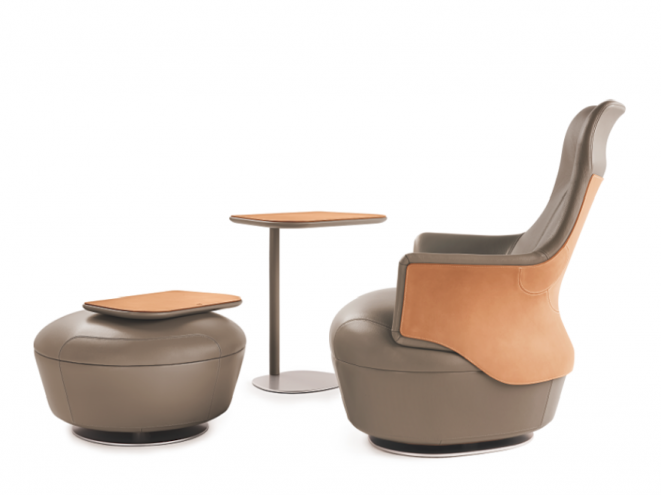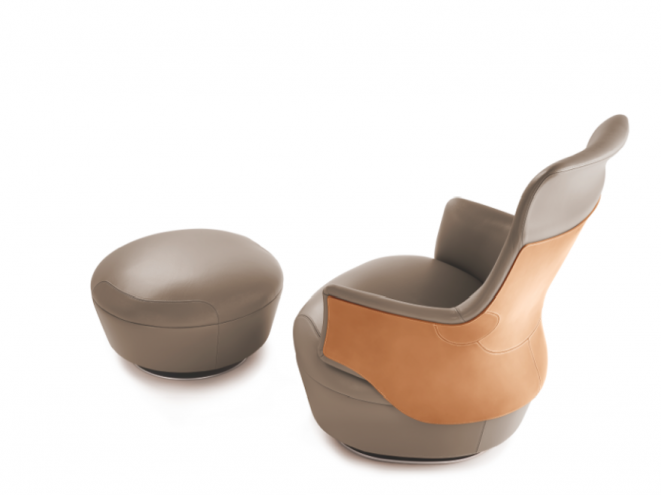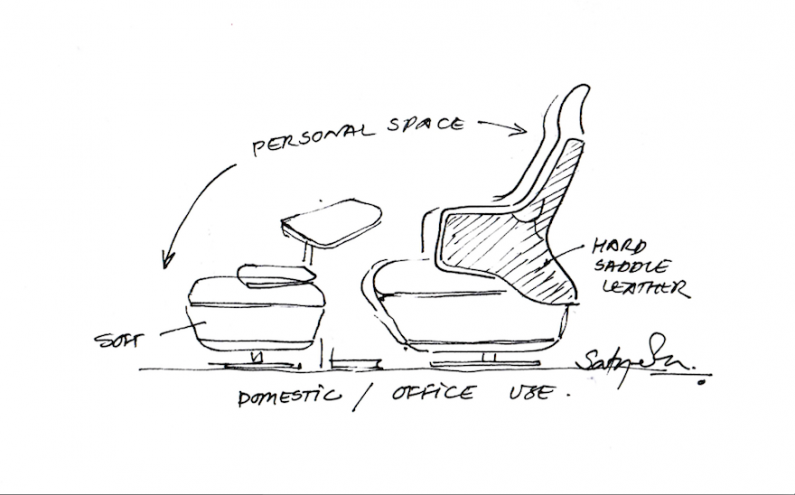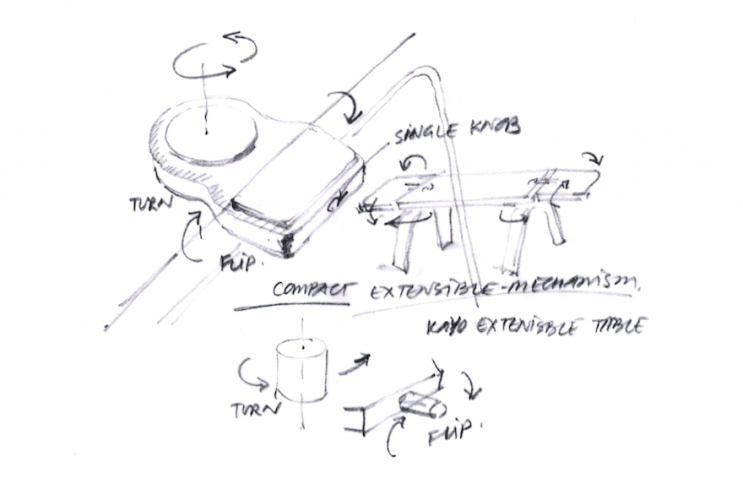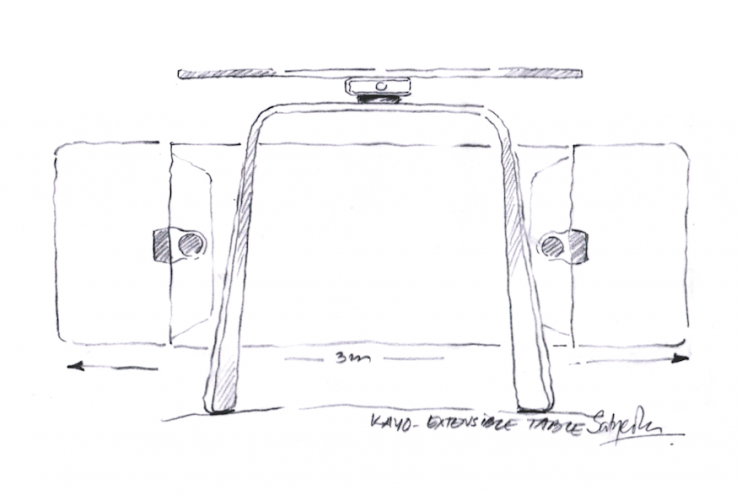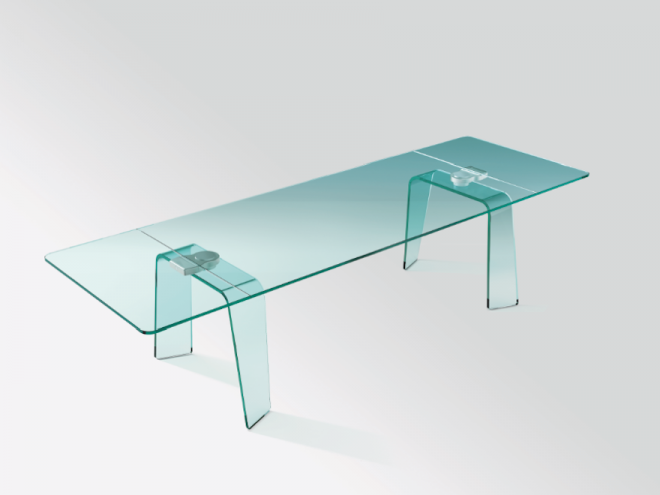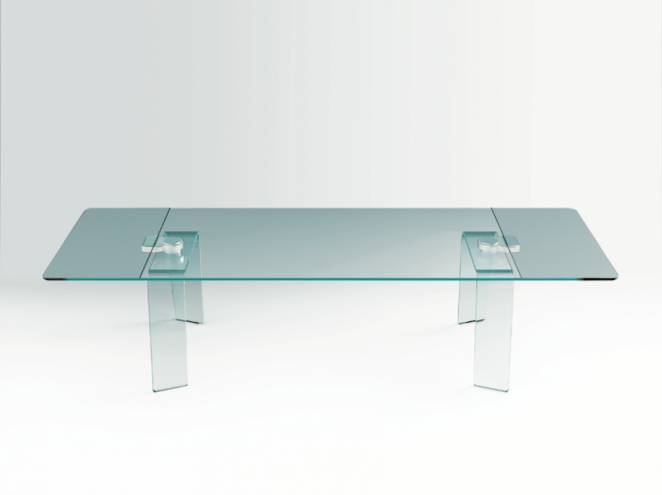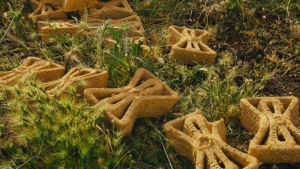Indian industrial designer Satyendra Pakhalé launches the Kayo Extensible Table for FIAM and the Assaya armchair collection for Poltrona Frau at Salone del Mobile 2015 this week.
The Kayo Extensible Table, made of glass, has a discreet and innovative extendable mechanism embedded in its bent glass legs. The strength and structural qualities of glass enabled Pakhalé to design the table with only two supporting pivots, without compromising its stability. The table extends from a two-metre to an impressive three-metre span.
“An invisible table that is elegant and magical – almost unseen – is what I wanted to create,” says Pakhalé, whose studio is based in Amsterdam. “The basic ingredient of industrial glass with its seamless transparency, reflective surface and technological sense of precision make the Kayo Extensible Table a basic utilitarian object that evokes a sense of the future.”
The Assaya collection for the centenary celebration of Italian furniture-makers Poltrona Frau comprises an armchair with a complementary pouf, side table and laptray that meet the needs of both leisure and labour.
The word “Assaya” in Pakhalé’s native tongue, Marathi, means “to provide comfortable support” or “to create pleasant sensations”. The blurring in modern society between the domestic space and the workplace inspired the concept for the collection.
The armchair is ergonomically designed to ensure comfort, and the side table and laptray are versatile accessories that can accommodate laptops, tablets or books.
Viewed from the side, the hard saddle-leather backrest of the generously sized armchair resembles the graceful shape of a corset. Its design combines soft and hard elements in an elegant mix of leather and hide with contrast stitching.
The chair can swivel 360 degrees and returns automatically to its original position. Both the pouf and armchair are built from seasoned beech wood, with leather upholstery and foam padding.
The side table has a single steel leg with a moulded profile and a leather surface. The laptray has the same surface, with a light padding. Both also feature contrast stitching.
The award-winning designer was born in India, studied at the Indian Institute of Technology in Bombay and set up a practice in the Netherlands in 1998. Pakhalé has worked for prestigious brands including Alcantara, Cappellini, Franke, Magis and Tod’s, and his work appears in permanent collections in museums around the world including the Victoria and Albert Museum London, Stedelijk Museum Amsterdam, Montreal Museum of Fine Arts and Centre Pompidou, Paris.

